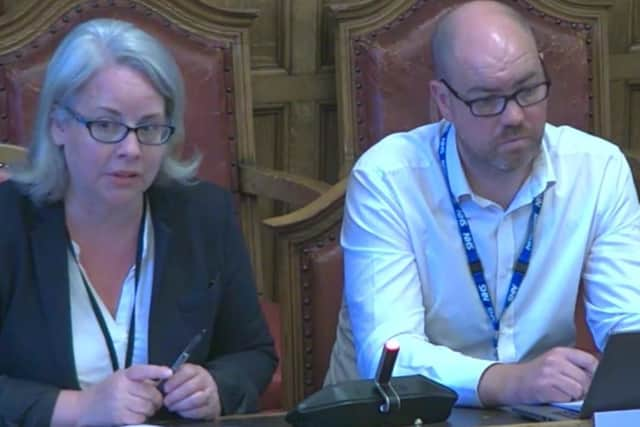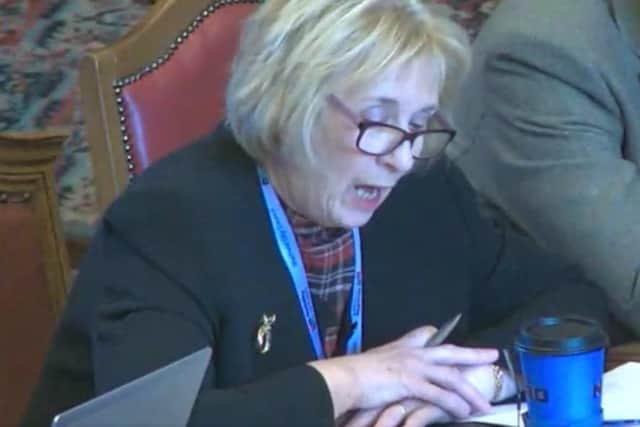£7m plan to cut Sheffield hospital discharge waiting times and improve service
and live on Freeview channel 276
Alexis Chappell, Sheffield City Council’s strategic director of adult care and wellbeing, told a meeting of the council’s adult health and social care policy committee on Wednesday (June 14): “One of the things around hospital discharge is often people talk about beds and talk about what does this mean in terms of delays. For me, what I think this is about is people.
“Because ultimately, whether you’re an older adult or whether you’re a person with a learning disability or who’s autistic or has issues with mental health, being in hospital, going through a period in hospital and coming out of hospital can be one of the most challenging episodes in a person’s life.”
Ms Chappell said the aim is to make the experience as positive and smooth as it should be for patients, family members and carers, with good support and the advice they need at the right time.


She said: “It is in line with our strategy, which is very much living the life that you want to live. Our adult care strategy set out an ambition for people to live an independent life at home.”
Advertisement
Hide AdAdvertisement
Hide AdIan Atkinson, deputy place director for NHS South Yorkshire, said it was a challenging agenda, part of national changes, and paid tribute to “staff working tirelessly across our services to improve discharge day in, day out”.
He said that Sheffield has been identified as an area that needs to improve because of numbers of people waiting to be discharged from acute beds.
The plan includes sending people home to be assessed there, not in hospital.


Other points include simplifying hospital processes, increasing home care capacity and better reviews of patients.
Zero waits
A report to the committee says that the aim is to have zero waits for discharge by October to get ahead of winter, when demand for NHS services rises.
Advertisement
Hide AdAdvertisement
Hide AdMr Atkinson said the only way the system will work is by pulling all services together. He added that a ring-fenced fund of just short of £7 million will enable changes to take place.
Coun Mick Rooney said: “This sounds like a move from treatment in an acute setting to a primary care nearer to home setting that’s been spoken about for a very long time and it also sounds like what the initiative that used to be Right First Time as well, with being rebranded. Obviously it’s the right thing to do.”
He asked who will monitor someone’s medical needs while they are being assessed to stay at home.
“Is it the GP or an outreach service from the hospital? Because if it’s the GP I can imagine them jumping up and down and screaming and shouting, saying ‘Whoah, we’re already busy enough already, thank you very much’.”
Advertisement
Hide AdAdvertisement
Hide AdMr Atkinson said that a community reception team will co-ordinate care and reviews, rather than adding to GPs’ workloads.
Coun Gail Smith said: “I want to echo what Coun Rooney said because we have been talking about this for many decades, not a few years.”
Pay levels
She said she does not believe that most carers working for private providers are properly trained: “Most of them do an amazing job but they could do so much more, they could help more in an emergency situation. I think that you need to get the companies around the table and talk about training.”
Ms Chappell said that carers working both inside and outside the council will now have the same levels of training. She is talking to Sheffield College about setting up a health and care academy.
Advertisement
Hide AdAdvertisement
Hide AdShe said that staff need to feel valued which includes looking at pay rates, delivering on the GMB and Unison trade union charters on pay levels for care staff.
